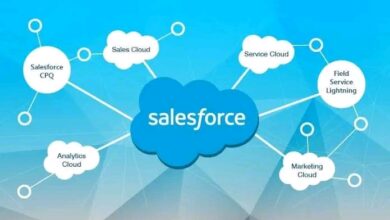Best CRM Guide: All You Need To Know Before Choosing a CRM Tool

In today’s fast-paced business world, customer relationship management (CRM) software plays a pivotal role in maintaining and enhancing customer interactions.
Whether you’re a small startup or an established enterprise, selecting the right CRM tool can significantly impact your overall business success.
How to Choose Good CRM Tools
In this comprehensive guide, we’ll walk you through the essential factors to consider before choosing a CRM tool and help you make an informed decision.
1. Understand Your Business Needs
Before diving into the sea of CRM options, take the time to identify your specific business needs and objectives.
Analyze your workflows, sales processes, customer support requirements, and marketing strategies.
Understanding your unique requirements will enable you to narrow down your choices and find a CRM that aligns perfectly with your business goals.
2. Scalability and Flexibility
As your business grows, so will your CRM needs. Therefore, it’s crucial to select a CRM tool that offers scalability and flexibility.
Ensure that the software can accommodate an increasing number of users and customer data without compromising on performance.
Additionally, opt for a CRM that integrates seamlessly with other essential tools and software you currently use, such as marketing automation or project management platforms.
3. User-Friendly Interface
A user-friendly CRM interface is vital to ensure smooth adoption by your team members. Complex and clunky software can lead to resistance from your staff, affecting productivity.
Look for a CRM that offers an intuitive and easy-to-navigate interface with a short learning curve.
A well-designed user interface can enhance efficiency and save time, allowing your team to focus on building better customer relationships.
4. Mobile Accessibility
In today’s mobile-driven world, it’s crucial to have a CRM tool that offers mobile accessibility.
Having access to customer data and insights on the go enables your sales and support teams to stay connected and responsive.
Choose a CRM that provides mobile apps or responsive web versions to facilitate efficient remote work and quick decision-making.
5. Data Security and Privacy
The data you store in your CRM system is sensitive and valuable, making data security and privacy paramount. Ensure the CRM tool you choose adheres to industry-standard security protocols and compliance regulations.
Look for features like data encryption, secure access controls, and regular data backups to safeguard your critical business information.
6. Integration Capabilities
Your CRM should be able to integrate seamlessly with other essential tools and software your business relies on. Integration capabilities allow you to centralize your data and streamline various processes.
Look for CRM solutions that offer pre-built integrations or open APIs, making it easier to connect your CRM with marketing tools, email clients, accounting software, and more.
7. Reporting and Analytics
Data-driven insights are the backbone of smart decision-making. A robust CRM should provide comprehensive reporting and analytics features.
These tools will help you monitor your sales pipeline, track customer interactions, measure marketing campaign performance, and identify areas for improvement.
Having access to real-time data empowers your team to optimize their strategies and drive better results.
FAQs
What factors should be considered before choosing a CRM tool?
Before choosing a CRM tool, consider factors like your specific business needs, scalability, user-friendliness, mobile accessibility, data security, integration capabilities, and reporting and analytics features.
How do I choose a CRM software?
To choose the right CRM software, start by understanding your business requirements, assessing scalability and flexibility, evaluating the user interface, ensuring mobile accessibility, prioritizing data security, checking integration capabilities, and reviewing reporting and analytics functionalities.
What are the 4 essential components of CRM?
The four essential components of CRM are:
• Sales Automation: Streamlining and automating the sales process from lead generation to deal closure.
• Marketing Automation: Automating marketing tasks, such as email campaigns and lead nurturing.
• Customer Support: Providing tools to manage customer inquiries, complaints, and support requests.
• Analytics: Offering data analysis and insights to make informed business decisions.
What is the world’s No. 1 CRM tool?
Salesforce is considered one of the world’s leading CRM tools and is often referred to as the No. 1 CRM tool due to its widespread adoption and extensive features. However, the CRM landscape is constantly evolving, and other competitors may have gained prominence since then. I recommend conducting up-to-date research to confirm the current top CRM tool.
Also Read: Amazon S3: Features, Benefits, and Why You Should Use It





